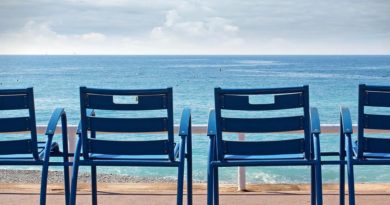France in a blocking position on the name of Barroso?
(B2) The appointment of a President of the European Commission has always been marked, over the past twenty years, by the blockage of one of the large Member States. This has often been done by the United Kingdom, or by Germany and France on the sly. We will see at the Summit of June 18 if Sarkozy lives up to his convictions or if he loses his temper. In any case, on the French side, we remain clear: it is urgent... to wait: the results of the elections and the majority that is emerging in the European Parliament. "The June Council will serve to give an "indication taking these elections into account. And then it will be up to the European Parliament to decide. Democratic procedure must be respected" recently recalled Bruno Le Maire, the (French) Secretary of State for European Affairs (1).
The four French red lines
In itself, this is a severe wake-up call for Barroso. The French minister thus refused to support frankly the current president of the European Commission. "We consider him to be a good president. But that's not the point" he answered questions from reporters. "We want to know what the European Commission is ready to defend as a program for the next 5 years. It will be necessary for the president and the future commission to commit to a clear line". And the Minister to specify what would be for France (and the UMP deputies in Parliament) the conditions for support, his red lines:
1) Enlargement. "Europe needs borders. We are ready to welcome the Balkans, but then we have to stop enlargement";
2) Industrial policy, economic cooperation. "Competition must no longer be the alpha and omega of the economic policies of the Member States. We need economic cooperation that creates jobs rather than destroying them" ;
3) WTO. "We need a European position that protects our interests at international level. You have to change economic software";
4) Banks. "The Commission must present a real program of financial regulation."
Can France go as far as the veto?
The four points of this program are at odds with Barroso and the spirit in which he conducted his Commission for five years. The French Minister, in publicly presenting these
conditions, was well aware of this. But the whole objective of this very political position was to show that French support for Barroso hangs by a thread. For what ? You can have multiple analyses.
1) cynicism. These are only words, just to occupy the terrain of the electoral campaign and to bite into the socialist terrain (the three economic points of the program would not be denied by any leader of the left).
2) European content. By setting the bar very high in the program (stopping the enlargement policy is totally against the current of Anglo-Saxon policy and the position of the Prodi Commission like Barroso), France is forcing the Commission to renovate his discourse in depth, in a sense that is more favorable to French economic and political interests (compared to German or British interests, which have been more taken into account over the past five years).
3) The change of mind. It's a refusal
implied by Barroso and the threat of a veto. France wants a change at the head of the Commission. His glaring lack of responsiveness during several crises: Bolkestein, constitutional, financial, showed the danger of a "political vacuum" in this position. While most heads are spinning in Europe, maintaining the same man would not be the best sign. Finally, Barroso's 'flexible weathervane' stance showed that he was not completely reliable. While the future President of the Commission is appointed for five years, and the next presidential and legislative elections in France, leaving him in office for a second term may prove to be a risk that a new personality remains to be found.
4) A tactical aim: posts. France is negotiating the position of several of its representatives with Barroso within the Commission and is not satisfied with the position offered. By maintaining uncertainty and pressure on him, it forces him to agree to his views with a high-ranking economic position (Competition or Internal Market and taxation or Trade) or very solid compensation (or even both at the same time ). It is also a question of showing the other partners within the Council the full place of France's voice in the debate. Especially since several European leaders will emerge rather weakened from the European campaign (Brown is particularly demolished, but also the Netherlands or even Germany which is in the electoral campaign). By maintaining uncertainty about its position in the European Council, France is forcing its European partners to take France's position more into account and grant it solid compensation in terms of "powerful" positions (secretary general of the Council or of the Commission, High Representative...).
In the end, we can estimate that the French position holds a little of all its elements: cynicism in the Sarkozy team and in politics in general cannot be ruled out, as well as the need to fuel politics with large ideas. But it is above all a question for the French leaders of being able to have a lasting influence on European policy. Relying on the good points and the achievements of its presidency, France shows its biceps. Because Europe must "serve" French views and interests more than hitherto - in its program, its direction, and in the distribution of powers within the Council and the Commission -.
(1) Press briefing with a few journalists during the last General Affairs Council, on 18 May.
(NGV)

